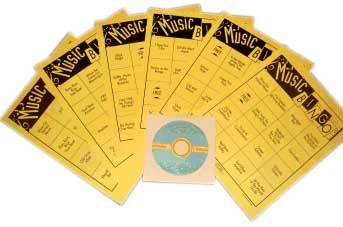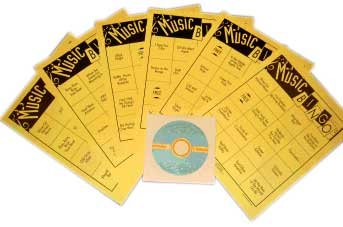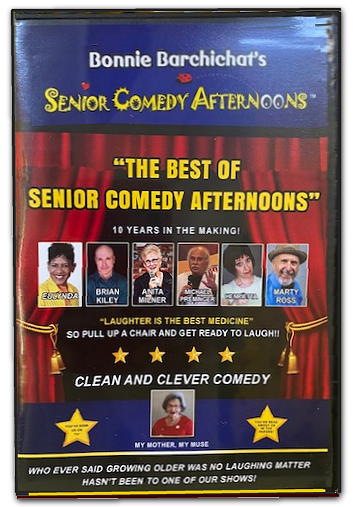Christmas Sing-Along Bingo Game
$27.95
Product Information
You have a winning combination when you mix the fun game of Bingo with music.
Christmas Sing-Along Bingo Game features:
A compact disk with 30-35 second excerpts of 54 holiday favorites, specially selected to be easily recognized. 24 different 8-1/2 by 11 bingo game cards, with 16 large-print song titles on each card. Also available is an additional set of 12 completely different cards 2 Laminated lists of the 54 songs on the CD for rapid check-off when a song has been played One dry-erase pen for marking the laminated song list Game instructions and adaptations
Christmas Sing-Along Bingo is played like Bingo, except the cards have names of holiday songs in the squares of the special cards that are supplied.
Play part of a song on the CD, and everyone sings along. If the players find the song on the card, they put a chip on the square. When someone fills in the squares for the game you are playing, they yell out BINGO. Verify the songs and after each game someone wins a prize. There can be more than one winner per game.
Around 4 or 5 games can be played in an hour or so. Several different games have been suggested in the game instructions to make it more fun.
Comes with 24 game cards. Need a duplicate set of 24 cards? - Click Here Need an additional set of 12 cards? - Click Here
You have a winning combination when you mix the fun game of Bingo with music.
Christmas Sing-Along Bingo Game features:
A compact disk with 30-35 second excerpts of 54 holiday favorites, specially selected to be easily recognized. 24 different 8-1/2 by 11 bingo game cards, with 16 large-print song titles on each card. Also available is an additional set of 12 completely different cards 2 Laminated lists of the 54 songs on the CD for rapid check-off when a song has been played One dry-erase pen for marking the laminated song list Game instructions and adaptations
Christmas Sing-Along Bingo is played like Bingo, except the cards have names of holiday songs in the squares of the special cards that are supplied.
Play part of a song on the CD, and everyone sings along. If the players find the song on the card, they put a chip on the square. When someone fills in the squares for the game you are playing, they yell out BINGO. Verify the songs and after each game someone wins a prize. There can be more than one winner per game.
Around 4 or 5 games can be played in an hour or so. Several different games have been suggested in the game instructions to make it more fun.
Comes with 24 game cards. Need a duplicate set of 24 cards? - Click Here Need an additional set of 12 cards? - Click Here
About Christmas Sing-Along Bingo Game
Product Information
You have a winning combination when you mix the fun game of Bingo with music.
Christmas Sing-Along Bingo Game features:
- A compact disk with 30-35 second excerpts of 54 holiday favorites, specially selected to be easily recognized.
- 24 different 8-1/2 by 11 bingo game cards, with 16 large-print song titles on each card. Also available is an additional set of 12 completely different cards
- 2 Laminated lists of the 54 songs on the CD for rapid check-off when a song has been played
- One dry-erase pen for marking the laminated song list
- Game instructions and adaptations
Christmas Sing-Along Bingo is played like Bingo, except the cards have names of holiday songs in the squares of the special cards that are supplied.
- Play part of a song on the CD, and everyone sings along.
- If the players find the song on the card, they put a chip on the square.
- When someone fills in the squares for the game you are playing, they yell out BINGO.
- Verify the songs and after each game someone wins a prize.
- There can be more than one winner per game.
Around 4 or 5 games can be played in an hour or so. Several different games have been suggested in the game instructions to make it more fun.
- Comes with 24 game cards.
- Need a duplicate set of 24 cards? - Click Here
- Need an additional set of 12 cards? - Click Here
-

Shipping Options
Shipping options and prices may vary depending on the total value of your order. Your final shipping price will be determined at checkout.
Options shown are based on your estimated location.
-
$5.66 - Standard US Media Shipping (4-6 Days)
Shipping Size
-
Size0 in × 0 in × 0 in
-
Weight0 lb






